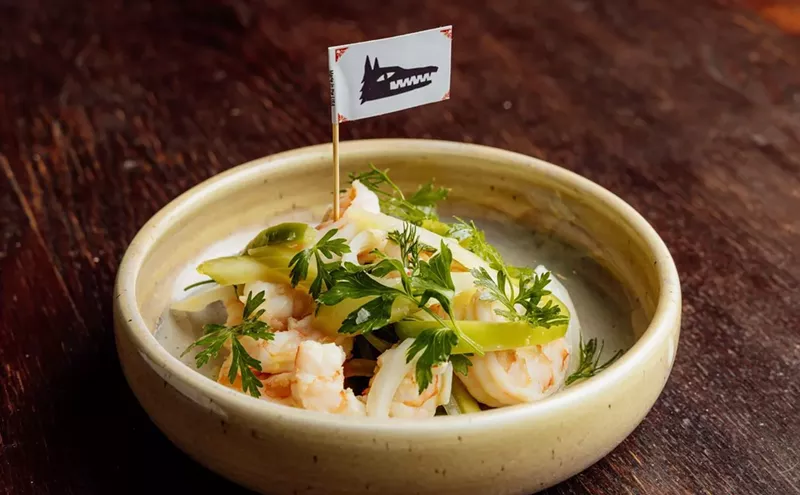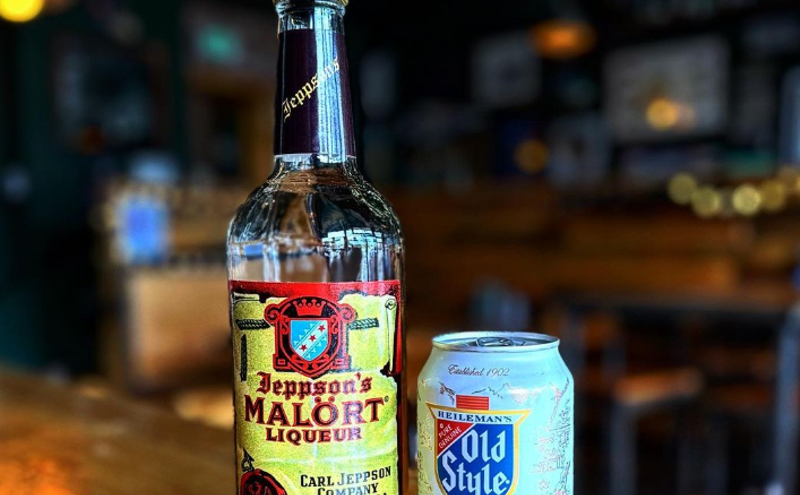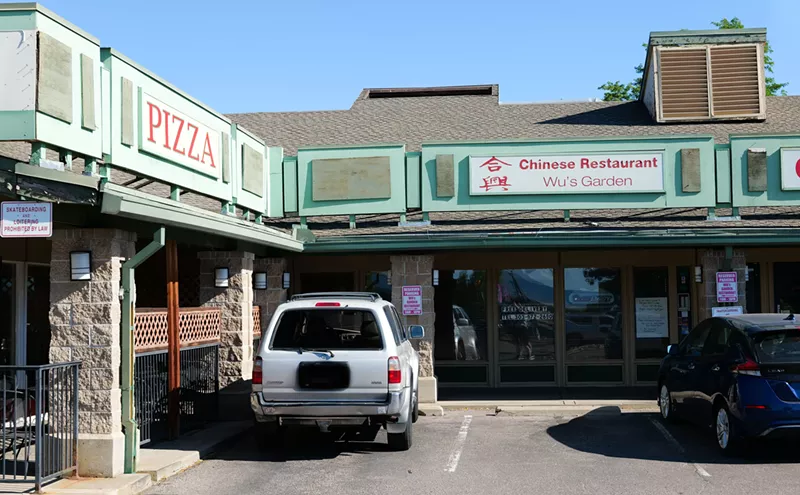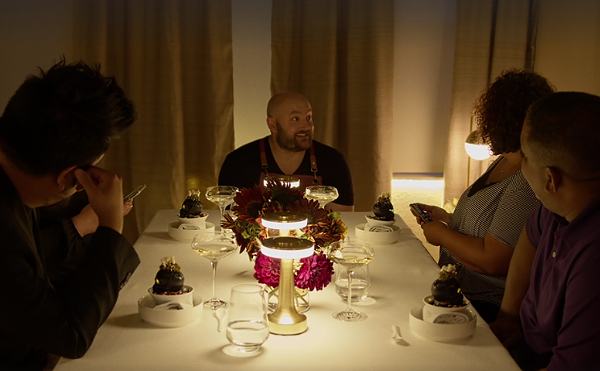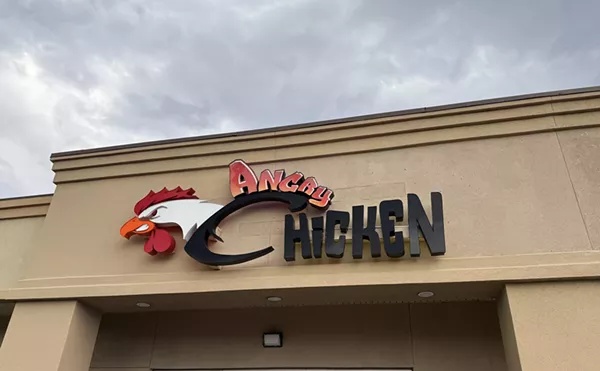Enter the Party Pig. Thanks to this ingenious invention out of Golden, in-house draft beer is now a reality across America.
"It's true draft beer at home," says Mike Gerstenkorn of Quoin Industrial, which developed and sells the unique Party Pig. "Our slogan is 'Press, pour and enjoy.' You don't have to hook up any pumps to it; you don't have to worry about CO2 cylinders or any of that."
Even better, the Party Pig delivers genuine draft quality that lasts. Rental kegs dispensed by standard hand pumps have a built-in shelf life of only a day or so, because pumped-in air quickly spoils the keg's contents. Growlers filled at brewpubs are a nice stand-in for fresh draft beer, but once opened, their contents start going flat; for peak beer freshness, they should be emptied in one night's sitting.
Not so the 2.25 gallon Party Pig, which keeps its contents at optimum freshness for weeks. "You can drink a glass or two or drink the whole thing at once," Gerstenkorn says, hinting at some serious Pigging out.
The secret behind the Pig's amazing abilities is a bladder that replaces decanted beer with a sealed bubble of gas. As beer is drawn out of the pig, the inner bladder swells with CO2 produced by a blending of bicarbonate of soda and citric acid (the same mix that powered science-project rockets in junior high). As more beer is consumed, the bladder's multiple pockets expand to fill more space and maintain an interior pressure of 15-20 PSI, at the same time creating a protective cover over the remaining beer. As a result, the Party Pig ranks as one of the most practical adult applications of classroom science -- ever.
According to Gerstenkorn, the Party Pig dates back to the early '70s and a Canadian inventor who sought a new way to empty aerosol cans. The Coors brewery bought the patent and explored using it as a means to dispense beer in a larger retail package but gave up on the project in the mid-'80s, selling the rights back to its Canadian creator. After that, Lowell Whitney, one of the few Coors staffers who'd worked on the project, bought the rights to the technology and launched Quoin Industrial with Gerstenkorn and a third partner, Mike Lane, in 1992.
The trio tweaked the concept, and the Party Pig was born. "We were drinking beers one night, trying to come up with a name for it," Gerstenkorn recalls. "Somebody said, 'It looks like a pig,' and the name just stuck."
A steadily growing number of brewpubs, particularly in the Northwest, are now stuck on the Pig. (Visit www.partypig.com for a complete list.) Rick Whitehouse is the one-man brewery staff at Denver's Heavenly Daze, one of the few local brewpubs that carry them; he's been a Pig fan for a long time, having sold them years ago when he brewed at the original Breckenridge Brewery location in Summit County.
Whitehouse is impressed by the Pig's benefits to brewers and consumers alike. "It takes a whole lot less labor to put beer in a package," he says. "You don't need a bottling machine, you don't need four employees running it, and it takes a lot less overhead. I can dispense a whole case of beer in five minutes."
The Rock Bottom Brewery near Park Meadows is the only Rock Bottom location that sells to-go beer in Pigs, which are a big hit at office parties in the Denver Tech Center. "They never go bad once you open them," explains brewmaster John Hanley, "because they stay pressurized and don't expose your beer to oxygen. So you don't have to drink the whole thing at one sitting."
He also sells about ten Pigs a week, at $24.95 a pop, to loyalists who make them their preferred beer package for at-home consumption. "It's the same beer that comes off our faucets," Hanley says. "Instead of coming by and picking up five growlers, they can pick up one of these."
But the Pig's hefty capacity might be one reason that Colorado isn't as hog-wild over the invention as are other parts of the country. "A lot of people are six-pack buyers, and they're a little overwhelmed about buying beer a case at a time," Whitehouse says. If you buy a Pig, he adds, "that's three less trips you've got to make to the liquor store. It takes about the same amount of room in your refrigerator as a couple big milk jugs, so you've got to have a wife who'll put up with it."
European alewives will soon be putting up with Pigs, too. Quoin recently inked a deal with a large European brewer (the company is waiting until late this month to announce the name) that will pay a licensing fee to use Party Pig technology to sell its beer at retail outlets. That deal, Gerstenkorn says, "will make our sales skyrocket."And in the meantime, Quoin will continue to sell Party Pigs to America's pubs and home-brewing shops, since home brewers account for 40 percent of all Pig sales. They eliminate the hassle of bottling homemade beer, greatly reducing the time required to get finished beer from the fermenter to a refrigerator-ready package. Pigs also hold the "real," naturally carbonated and bottle-free beer for which ambitious home brewers strive.
The Pig is also a good party guest for home brewers who want to share their efforts at brew-club meetings, picnics and other events. "You've got tap beer wherever you want to go, and in a smaller volume than a full-sized keg," Gerstenkorn points out.
"The Party Pig," he concludes with pride, "is a novelty that works."



